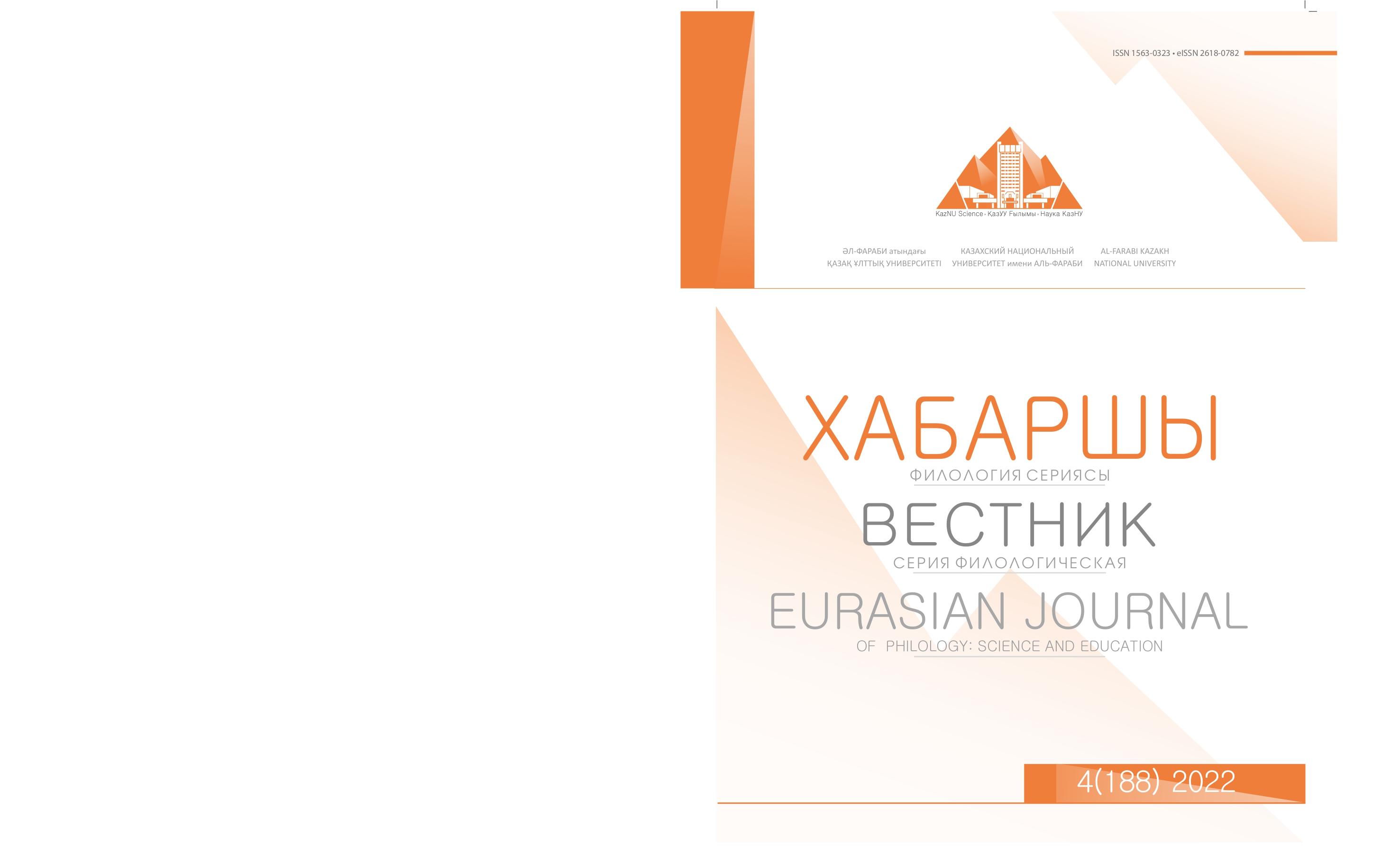Linguocultural aspects of national and oriental characters
DOI:
https://doi.org/10.26577/EJPh.2022.v188.i4.03Abstract
The article deals with the linguoculturological aspects of the characterological names of national and oriental peoples. The author draws attention to the problems of the emergence, development, and formation of linguoculturological science. In addition, the folklore heritage and works of Kazakh writers are studied in order to reflect the national character and reveal their linguocultural nature. Also, in accordance with the research objectives, presentation of Eastern norms, literary relics, folklore heritage of Chinese, Japanese, Mongolian peoples are considered. The article explains the similarities and peculiarities of Kazakh and Eastern nations’ characters using specific examples.
One of the main goals of the research is the consistent study of this scientific discipline’s research object, considering linguoculturology as a new direction in modern linguistics within the framework of national behavioral names. The article uses cognitive, ethnolinguistic methods that reveal the linguoculturological features of character names, denoting the national-cultural code of Kazakhstan and the countries of the East.
The problems considered in the course of the research allow us to pay attention to articles related to the comparative, cognitive, linguoculture of the ethnos and subethnos. At the same time, the author emphasizes the linguocultural significance of character in the analysis of the significance of the cultural code, the peculiarities of national verbalization with the help of scientific conclusions and examples of domestic and foreign scientists.
From a scientific point of view, the author formulates the advantage of using the linguocultural approach in the study of national characters for individual ethnic groups. The presented material more or less contributes to the development of linguoculturology in Kazakh linguistics.
Keywords: linguoculturology, linguocultural approach, national character, Eastern character, ethnoculture.






